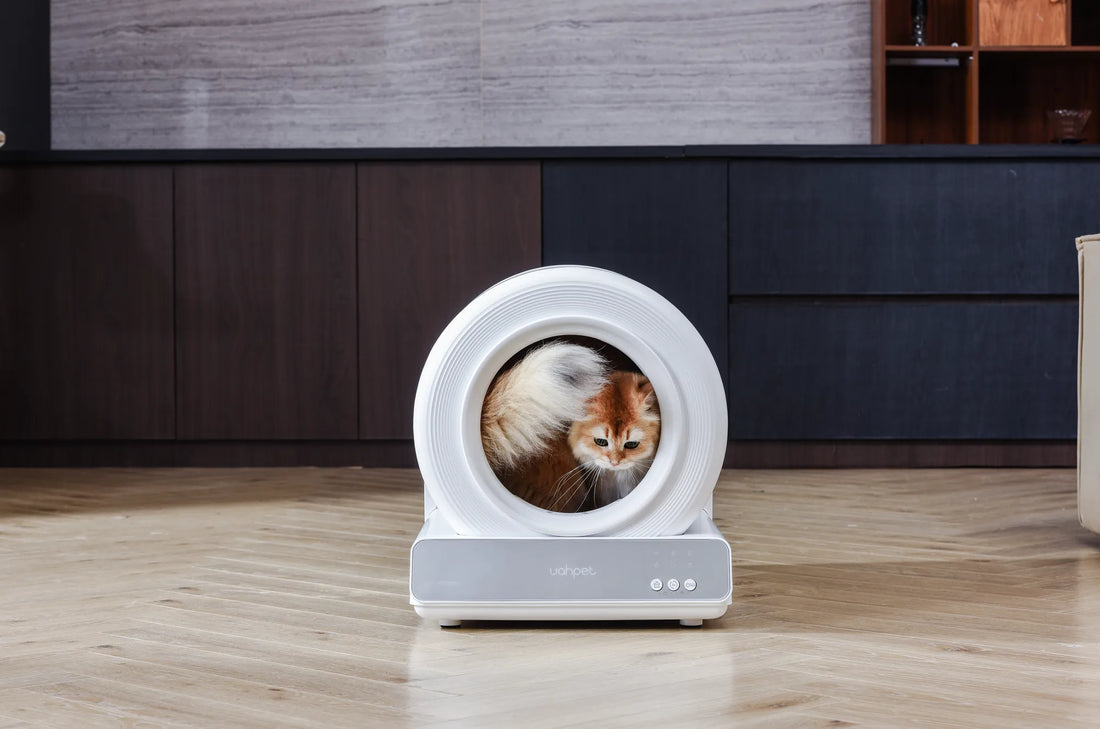Have you ever walked into your home to find your cat curled up in its litter box, fast asleep? This peculiar behavior can be both puzzling and concerning for pet owners. While it may seem odd, there are several reasons why a cat might choose to sleep in its litter box. Understanding these reasons can help you address the underlying issues and ensure your feline friend is happy and healthy.
Understanding Feline Behavior
Cats are known for their unique and sometimes mysterious behaviors. To comprehend why a cat might sleep in its litter box, it's essential to delve into their natural instincts and habits. Cats are territorial animals, and their behavior is often influenced by their need to feel secure and in control of their environment.
Stress and Anxiety
One of the primary reasons a cat might sleep in its litter box is stress or anxiety. Changes in the household, such as moving to a new home, the arrival of a new pet, or even changes in the daily routine, can cause a cat to feel unsettled. The litter box, being a familiar and enclosed space, can provide a sense of security and comfort during these times of uncertainty.
Health Issues
Health problems can also lead to this behavior. Cats suffering from urinary tract infections, gastrointestinal issues, or other medical conditions may associate the litter box with relief from discomfort. In such cases, sleeping in the litter box might be a sign that your cat is trying to stay close to a place where it feels some relief from its symptoms.
Environmental Factors
The environment in which a cat lives plays a significant role in its behavior. A lack of suitable sleeping areas, overcrowding, or even the presence of other animals can drive a cat to seek refuge in its litter box.
Lack of Comfortable Sleeping Spaces
Cats need cozy, quiet, and safe places to sleep. If your home doesn't provide enough comfortable sleeping spots, your cat might resort to the litter box as a makeshift bed. Ensuring that your cat has access to soft bedding, cat trees, or other designated sleeping areas can help prevent this behavior.
Overcrowding and Competition
In multi-cat households, competition for resources can lead to stress and territorial disputes. A cat that feels threatened or overwhelmed by other pets might retreat to the litter box as a safe haven. Providing multiple litter boxes and ensuring each cat has its own space can alleviate this issue.
Behavioral Solutions
Addressing the root cause of your cat's behavior is crucial for finding a solution. Here are some steps you can take to help your cat feel more comfortable and secure in its environment.
Create a Safe and Comfortable Environment
Ensure that your cat has access to plenty of comfortable sleeping areas. Cat beds, blankets, and even cardboard boxes can provide cozy spots for your cat to rest. Additionally, make sure that these areas are located in quiet, low-traffic parts of your home.
Reduce Stress and Anxiety
Identify and address any sources of stress in your cat's environment. This might involve gradually introducing new pets, maintaining a consistent routine, or providing enrichment activities like toys and scratching posts. In some cases, consulting with a veterinarian or a feline behaviorist may be necessary to develop a tailored plan for your cat.
Monitor Health and Seek Veterinary Care
If you suspect that your cat's behavior is related to a health issue, it's essential to seek veterinary care promptly. A thorough examination can help identify any underlying medical conditions that need to be addressed. Early intervention can prevent more serious health problems and improve your cat's overall well-being.
Preventing Future Issues
Taking proactive steps to prevent your cat from sleeping in its litter box can help ensure a happy and healthy feline companion. Here are some tips to keep in mind.
Maintain a Clean Litter Box
Regularly cleaning the litter box is essential for your cat's health and comfort. A dirty litter box can lead to stress and health issues, making it less likely that your cat will want to sleep there. Aim to scoop the litter box daily and perform a thorough cleaning at least once a week.
Provide Multiple Litter Boxes
In multi-cat households, having multiple litter boxes can reduce competition and stress. The general rule of thumb is to have one litter box per cat, plus one extra. This ensures that each cat has access to a clean and available litter box at all times.
Enrich Your Cat's Environment
Providing plenty of mental and physical stimulation can help reduce stress and prevent unwanted behaviors. Interactive toys, scratching posts, and regular playtime can keep your cat engaged and content. Additionally, consider creating vertical spaces, such as cat trees or shelves, to give your cat more opportunities to explore and relax.
Understanding why your cat sleeps in its litter box is the first step toward addressing the issue. By considering factors such as stress, health, and environment, you can create a more comfortable and secure space for your feline friend. With the right approach, you can help your cat feel safe and content, ensuring a happy and healthy life together.

![[🎃Halloween Sale]UAHPET Stainless Steel Self-Cleaning Cat Litter Box](http://www.uahpet.com/cdn/shop/files/1-cat-litter-box.jpg?v=1761890851&width=1600)












